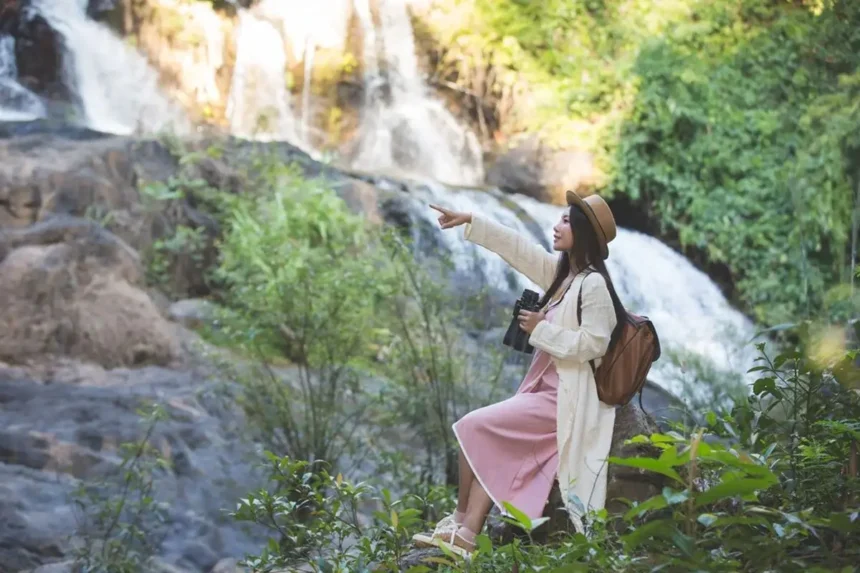Introduction
In a world where the pace of life can often feel overwhelming, the concept of Karingkarla—rooted in the healing traditions of travel—has emerged as a powerful antidote. Karingkarla isn’t just about escaping the daily grind; it’s about seeking restoration and growth through immersive, culturally rich travel experiences. This article delves into the essence of Karingkarla, exploring its significance, key principles, and the transformative impact it can have on our well-being.
Detailed Explanation of Key Concepts
1. What is Karingkarla?
Karingkarla, a term derived from Indigenous Australian languages, encompasses a holistic approach to travel that emphasizes healing, self-discovery, and connection with nature. Unlike conventional tourism, Karingkarla encourages travelers to engage deeply with the environment and local cultures, fostering a sense of peace and inner balance.
- Cultural Immersion: Karingkarla emphasizes the importance of understanding and respecting the traditions and customs of the places visited. This deep cultural immersion is key to achieving a meaningful travel experience.
- Connection with Nature: Central to Karingkarla is the belief that spending time in natural environments can lead to profound emotional and physical healing. This practice is particularly rooted in Indigenous beliefs that nature is a source of life and well-being.
2. The Historical Roots of Karingkarla
Karingkarla has its origins in the ancient practices of Indigenous Australian communities, where travel was seen as a spiritual journey. These traditions were passed down through generations, with a focus on healing, self-reflection, and connecting with the land.
- Spiritual Journeys: Historically, travel was not merely for leisure but was often undertaken for spiritual purposes, such as seeking guidance from ancestral spirits or participating in sacred rituals.
- Healing Practices: Indigenous Australians believed in the therapeutic power of nature, using the landscape as a source of medicinal plants and a space for mental rejuvenation.
3. Modern Interpretations of Karingkarla
In contemporary society, Karingkarla has evolved to encompass a broader range of travel experiences, while still retaining its core principles of healing and cultural respect. This modern interpretation includes wellness retreats, eco-tourism, and spiritual journeys that draw from ancient traditions.
- Wellness Tourism: Many travelers seek out destinations that offer wellness programs, such as yoga retreats or meditation centers, aligning with the principles of Karingkarla.
- Eco-Tourism: The modern Karingkarla experience also emphasizes sustainable travel practices, encouraging visitors to respect and preserve natural environments.
Importance and Benefits
1. The Therapeutic Power of Travel
Travel has long been recognized as a way to refresh the mind and spirit. Karingkarla takes this a step further by focusing on travel experiences that are designed to heal and rejuvenate the traveler on a deeper level.
- Mental Health Benefits: Immersive travel experiences can reduce stress, anxiety, and depression, promoting mental well-being.
- Physical Health: Engaging with nature and participating in physical activities during travel can boost physical health, improving cardiovascular health and reducing the risk of chronic diseases.
2. Promoting Cultural Understanding and Respect
Karingkarla is not just about personal healing; it’s also about fostering a deeper understanding of different cultures. By engaging with local traditions and practices, travelers can gain insights into ways of life that are often vastly different from their own.
- Cultural Exchange: Through respectful engagement with local communities, travelers can learn and share cultural knowledge, leading to a more connected and empathetic world.
- Preserving Traditions: By participating in traditional practices, travelers contribute to the preservation and continuation of cultural heritage.
You may also like: Prekldača: Revolutionizing Communication Language
3. Real-World Applications of Karingkarla
Karingkarla can be applied in various contexts, from personal travel to corporate retreats, offering a range of benefits that extend beyond the individual traveler.
- Corporate Retreats: Companies are increasingly incorporating the principles of Karingkarla into corporate retreats, using these experiences to foster team building and reduce workplace stress.
- Community Development: Travel experiences that align with Karingkarla can contribute to the economic development of local communities, particularly in remote areas.
Applications and Use Cases
1. Wellness Retreats and Spiritual Journeys
One of the most popular applications of Karingkarla is in the form of wellness retreats and spiritual journeys. These experiences often include activities such as meditation, yoga, and nature walks, all designed to promote healing and personal growth.
- Mindfulness Retreats: These retreats focus on mental and emotional healing, offering a space for participants to disconnect from the chaos of daily life and reconnect with their inner selves.
- Spiritual Pilgrimages: Some travelers undertake spiritual pilgrimages, visiting sacred sites that hold special significance in various cultures.
2. Eco-Tourism and Sustainable Travel
Karingkarla also emphasizes the importance of sustainable travel practices. This includes choosing eco-friendly accommodations, supporting local businesses, and minimizing the environmental impact of travel.
- Eco-Lodges: Travelers can stay in eco-lodges that are designed to have minimal environmental impact while providing a comfortable and immersive experience.
- Voluntourism: Some Karingkarla experiences include opportunities for voluntourism, where travelers can contribute to environmental conservation efforts or community development projects.
3. Educational and Cultural Immersion Programs
Educational travel programs that focus on cultural immersion are another key application of Karingkarla. These programs often involve living with local communities, learning about their customs, and participating in traditional activities.
- Language Learning: Immersive language programs allow travelers to learn a new language while living in the community where it is spoken.
- Cultural Workshops: Travelers can participate in workshops that teach traditional crafts, music, or cooking, offering a hands-on way to engage with the culture.
Challenges and Solutions
1. Cultural Sensitivity
One of the challenges of Karingkarla is ensuring that travelers engage with local cultures in a respectful and meaningful way. This requires a deep understanding of the customs and traditions of the communities being visited.
- Education and Awareness: Travelers should be educated about the cultural norms and practices of the destinations they visit, ensuring that their actions are respectful and appropriate.
- Community Involvement: Involving local communities in the planning and execution of travel experiences can help ensure that cultural sensitivity is maintained.
2. Environmental Impact
Travel, particularly to remote or fragile environments, can have a significant environmental impact. Karingkarla emphasizes the importance of minimizing this impact through sustainable travel practices.
- Sustainable Travel Practices: Travelers should adopt sustainable practices, such as reducing waste, conserving water, and supporting eco-friendly businesses.
- Responsible Tourism: It’s important for travelers to be aware of their environmental footprint and to take steps to minimize their impact on the natural environment.
3. Access and Inclusivity
Ensuring that Karingkarla experiences are accessible to all, regardless of physical ability or financial means, is another challenge. Making these experiences inclusive is key to their success.
- Accessible Travel Options: Travel providers should offer options that are accessible to people with disabilities, ensuring that everyone can participate in Karingkarla experiences.
- Affordability: Offering a range of price points for Karingkarla experiences can make them more accessible to a broader audience.
Conclusion
Karingkarla represents a powerful approach to travel that goes beyond mere exploration. It offers a pathway to healing, self-discovery, and cultural understanding, rooted in the ancient traditions of Indigenous Australian communities. Whether through wellness retreats, eco-tourism, or cultural immersion programs, Karingkarla provides a transformative travel experience that can enrich the mind, body, and spirit. As the world becomes more connected, the principles of Karingkarla will continue to play a crucial role in shaping how we travel and engage with the world around us. Embrace the journey and discover the healing power of Karingkarla today.










